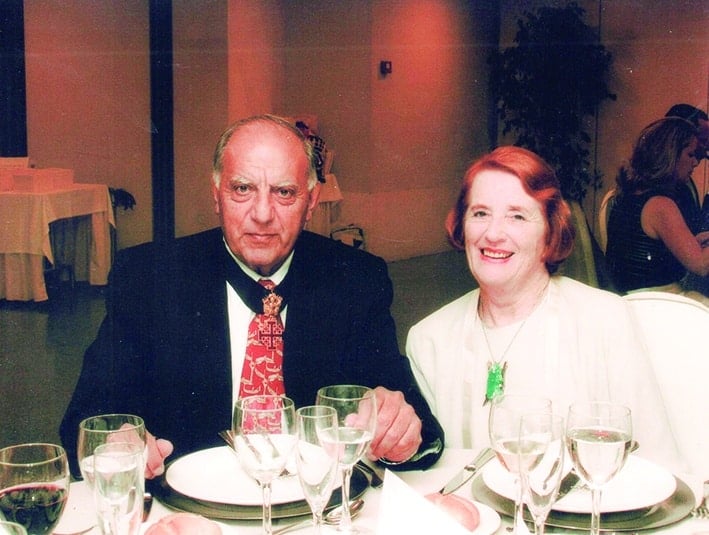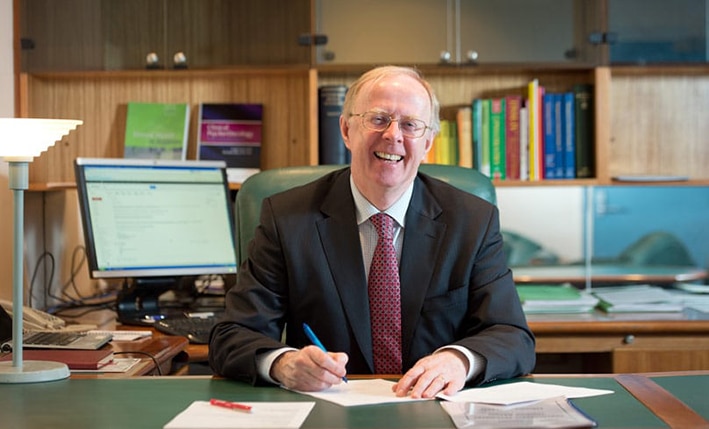
Sydney family bequeaths a stunning $500,000 to Notre Dame for Palliative Care training
Palliative care research at the University of Notre Dame Australia will benefit from a $500,000 bequest, the largest gift received for the valuable work in the area of end-of-life care at the Catholic university this year. Dr Glen Coorey was a much-loved Sydney surgeon and Governor of the University of Notre Dame. He played a key role in establishing the University’s Medical School in Sydney, through a generous gift in 2007.
His wife Suzanne, who died in August last year, bequeathed on behalf of both of them a further gift of $500,000 to the University’s School of Medicine to help endow the Chair of Palliative Medicine, held by Professor David Kissane.
Born in Charleville in Queensland, Glen was the son of Lebanese migrants who greatly valued education and sent their son to St Joseph’s College, Hunters Hill, to complete his education. He met Suzanne, a physiotherapist, when both were working at Sydney’s Royal Prince Alfred Hospital. They married in 1959 and had seven children.
Glen joined the medical board at RPAH, and was for years the head of urology as well as a senior lecturer at Sydney University.
John Coorey, the pair’s second child, told The Catholic Weekly that his parents were devout Catholics who touched many people’s lives both here and overseas. They were also a Knight and Dame of the Order of Equestrian Order of the Holy Sepulchre of Jerusalem.
Suzanne sang in the St Mary’s Cathedral choir and Glen strongly believed in the necessity of a Catholic university and medical school.
“Dad was very active in the Right to Life movement in the 70s and 80s and he took a keen interest in euthanasia debates,” said John. “He was in favour of people dying in dignity and without pain but was very worried and concerned about codified or legalised euthanasia.
“He could see the potential for abuse and the potential difficulties for surgeons, physicians and doctors more broadly because it became a legal issue as opposed to a moral one and took [sensitive end-of-life issues] out of the hands of doctors and their families.”
Both Glen and Suzanne died peacefully at home with help from professional carers and family members.

“They had the benefit of that palliative care provided to them and it meant a lot to them in their last years. We know they want to see research into improving palliative care particularly in a Catholic context, as they also valued the element of spirituality in the way that Catholic hospitals provide health care in the tradition of the religious orders that established them,” John said.
The Coorey family estate also gave generous bequests to the schools they and their children attended, St John’s College at Sydney University, and the Royal Prince Alfred Hospital’s department of urology.
Professor Kissane said he was deeply grateful for Dr and Mrs Coorey’s generosity.
“It is absolutely wonderful to have a bequest coming that can support research into palliative care,” he said.
“It is so important that we have a Catholic university embracing research into palliative medicine to ensure the optimal delivery of care at the end of life in our society.”
He said he strongly believes that there needs to be a commitment to sustaining the quality of palliative care.
Bequest will aid training of doctors
Gift ‘critical’ to forming, educating those will provide palliative care
“A body of research that supports the teaching and training of Notre Dame medical students to understand palliative care, and optimally deliver palliative care to their patients, is a critical agenda for a Catholic University to have.
“We have been privileged to have Notre Dame support the early development of a national research program in palliative medicine.” The program currently contains a group of five PhD students and three Masters students, who will help grow a pool of researchers into the future.
Current research themes include the relief of bone pain, the incorporation of value statements into advance care plans, early recognition and prevention of delirium, dealing with psychological distress and spirituality, integrating palliative care with aged care, and assisting families in providing support during this difficult period.
Chronic underfunding of palliative care around the country has been of even greater concern since the legalisation of voluntary assisted dying laws, including this year in NSW.
Related:
